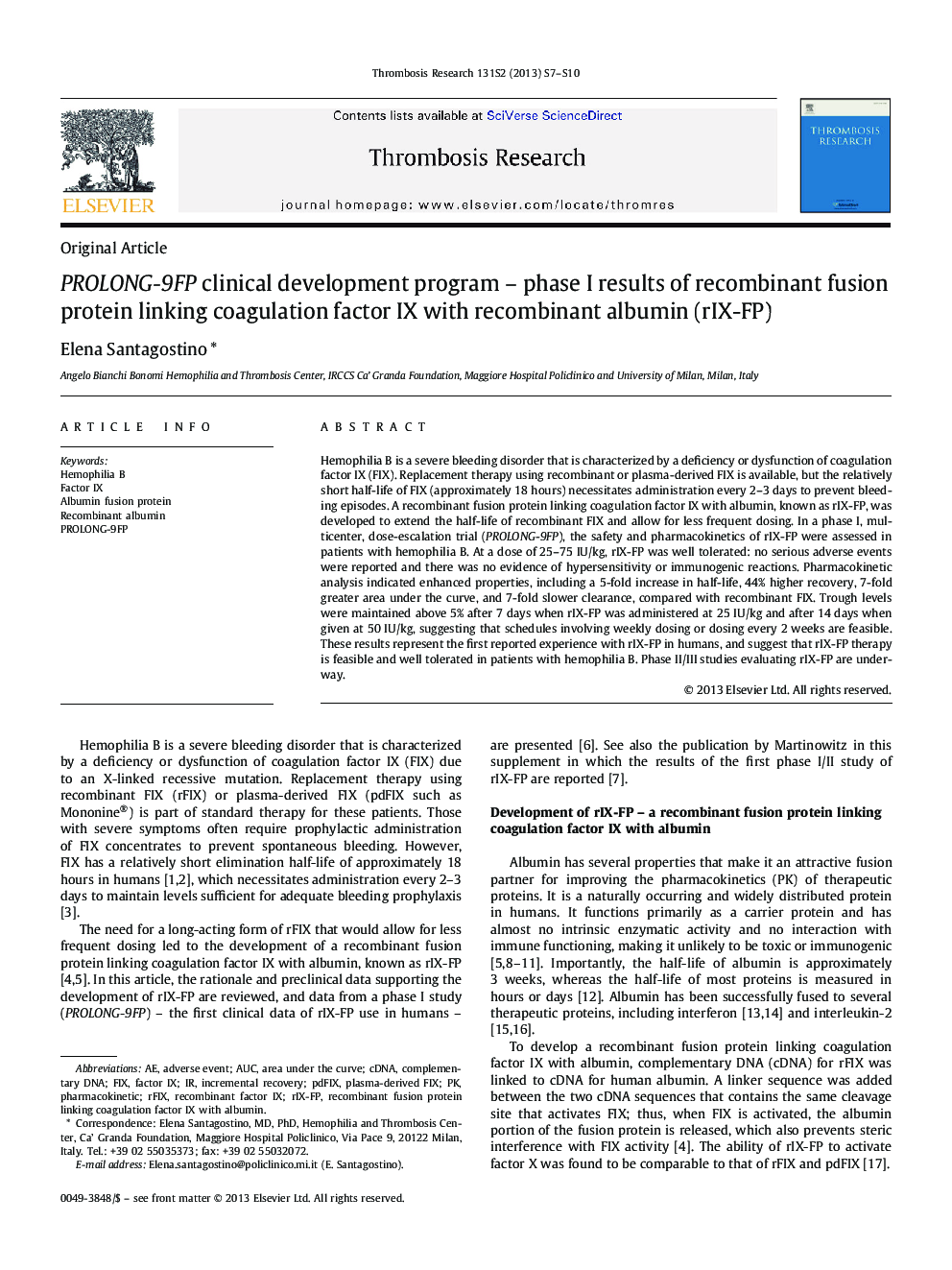| Article ID | Journal | Published Year | Pages | File Type |
|---|---|---|---|---|
| 3027347 | Thrombosis Research | 2013 | 4 Pages |
Hemophilia B is a severe bleeding disorder that is characterized by a deficiency or dysfunction of coagulation factor IX (FIX). Replacement therapy using recombinant or plasma-derived FIX is available, but the relatively short half-life of FIX (approximately 18 hours) necessitates administration every 2–3 days to prevent bleeding episodes. A recombinant fusion protein linking coagulation factor IX with albumin, known as rIX-FP, was developed to extend the half-life of recombinant FIX and allow for less frequent dosing. In a phase I, multicenter, dose-escalation trial (PROLONG-9FP), the safety and pharmacokinetics of rIX-FP were assessed in patients with hemophilia B. At a dose of 25–75 IU/kg, rIX-FP was well tolerated: no serious adverse events were reported and there was no evidence of hypersensitivity or immunogenic reactions. Pharmacokinetic analysis indicated enhanced properties, including a 5-fold increase in half-life, 44% higher recovery, 7-fold greater area under the curve, and 7-fold slower clearance, compared with recombinant FIX. Trough levels were maintained above 5% after 7 days when rIX-FP was administered at 25 IU/kg and after 14 days when given at 50 IU/kg, suggesting that schedules involving weekly dosing or dosing every 2 weeks are feasible. These results represent the first reported experience with rIX-FP in humans, and suggest that rIX-FP therapy is feasible and well tolerated in patients with hemophilia B. Phase II/III studies evaluating rIX-FP are underway.
